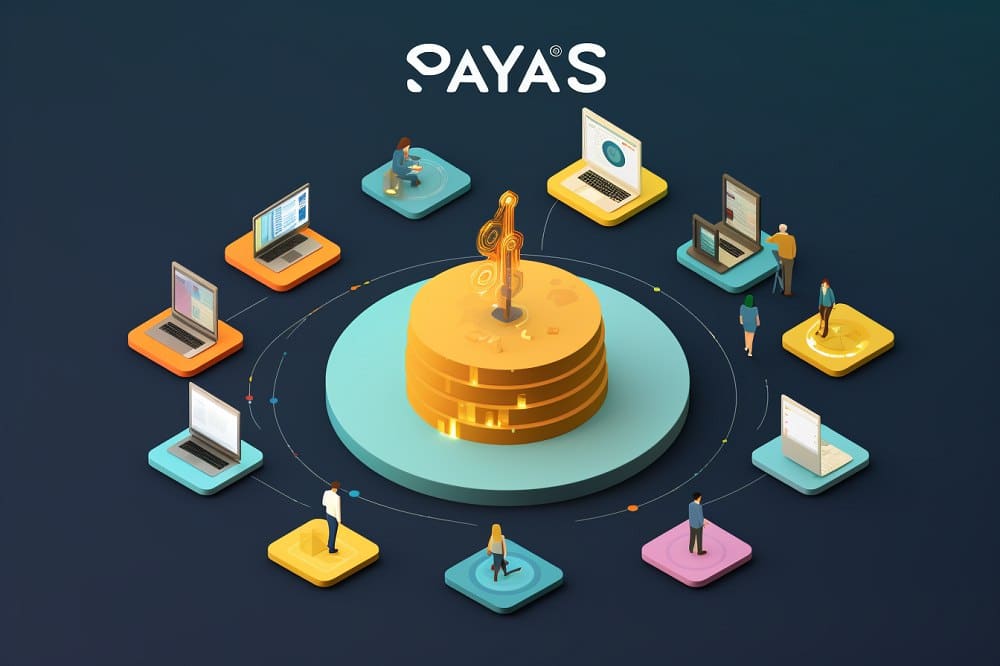
Audius Brings Stablecoin Payments to Artists: Great Benefits?
Web3 music streaming platform Audius is enabling stablecoin payments for artists, empowering them with control over revenue streams and fan engagement.
Audius Introduces Stablecoin Payments to Artists
Web3 technology is transforming the music industry by giving artists more financial control through platforms like Audius. Audius, a decentralized, artist-led music-sharing and streaming service, announced a new feature allowing musicians to receive direct stablecoin payouts.
The platform now allows payments in USD Coin (USDC), giving musicians more control over their revenue streams. The private beta phase of this feature, which began in November 2023, has been completed.
Hence, artists can now set their prices for music, giving them the freedom to decide how much they charge. Fans can make payments via credit card, which are automatically converted into USDC and transferred to the artists.
The artist can easily convert this stablecoin payment into any currency. The Audius platform also introduced a revenue-sharing model.
Ten percent of each transaction will go into the Audius community treasury, with future governance decisions determining how the funds are distributed. The platform’s community-driven aspect allows artists to have a say in how the revenue is shared and used, creating a more transparent and fair system.
Kato On The Track Spearheads Early Adopters List
One of the early adopters of this new feature is Kato On The Track, a producer who has found success selling beats and music downloads through Audius. Kato has used the platform’s marketplace to offer his music directly to fans, bypassing traditional streaming platforms and creating new revenue streams.
His success has shown how artists can benefit from these Web3 tools. Rapper MadeinTYO has also taken advantage of Web3 tools to engage more deeply with his audience. He hosted a contest on Audius, allowing fans to use his music stems to create their tracks.
This interaction gave him more control over his music while building stronger connections with his fan base. MadeinTYO’s experience highlights how Web3 can help artists create unique and memorable experiences for their fans.
Audius is gaining more traction, with independent labels like EMPIRE, DistroKid, and Ninja Tune joining the platform to give their artists access to these new features. Audius has also secured licensing deals with major rights organizations such as BMI, ASCAP, and SESAC.
These agreements further solidify Audius’s role in the music industry, showing that decentralized platforms can coexist with traditional music licensing structures. As Audius continues to develop, it offers musicians new ways to monetize their work, breaking away from traditional models used by mainstream platforms like Spotify and Apple Music.
Audius co-founder and CEO Roneil Rumburg believes these tools give artists more power over their creative and financial futures.
Eastern Asia Receives $400B in Stablecoin
Meanwhile, a recent report by Chainalysis showed that Eastern Asia received more than $400 billion in stablecoins and other digital currencies between July 2023 and June 2024. Accordingly, the region, including China, South Korea, Japan, Hong Kong, and Taiwan, ranks sixth globally for the value of digital assets received.
Notably, institutional and professional investors accounted for the largest share of this amount. South Korea remains the top market for digital assets in Eastern Asia. South Korea’s position raises the question of whether China will reconsider its current stance on digital currencies.
High Fees and Centralized Exchanges Hampering Growth
The growing adoption of digital currencies in Eastern Asia is undeniable, but challenges remain. High transaction fees and regulatory uncertainty continue to hinder broader adoption.
For example, although Ethereum transaction fees are lower than in previous years, they still average more than $1.50. This is too expensive for small, everyday transactions in many parts of the world, particularly in developing countries like Indonesia and the Philippines, where the average daily income is around $15.
At that rate, a single Ethereum transaction could consume up to 10% of daily earnings. The report also highlighted how centralized exchanges add to the cost of transactions.
Despite the rise of decentralized exchanges, centralized platforms remain popular among professional and everyday users. Every fee in the transaction chain increases costs, making digital currencies less attractive for small payments or remittances.
These barriers make it harder for digital currencies to achieve widespread use for daily transactions, especially in regions where incomes are lower.
Finance Phantom Bot -> Read More




